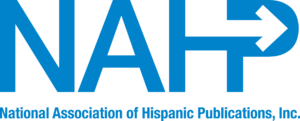FOR IMMEDIATE RELEASE
February 25, 2016
MEDIA CONTACTS
Olga DeMetri | ODeMetri@levick.com | (202) 909-3043
Estuardo Rodriguez | erodriguez@rabengroup.com | (202) 631-2892
Brenda Arredondo | barredondo@rabengroup.com | (202) 587-4945
NATIONAL HISPANIC LEADERSHIP AGENDA SETS DEADLINE URGING PRESIDENTIAL
CANDIDATES TO RESPOND TO THE 2016 HISPANIC PUBLIC POLICY AGENDA
Leading Coalition of Latino Organizations Unveils Policy Priorities of the Latino Community;
Calls on Presidential Candidates to Respond to Issues Central to Latino voters
WASHINGTON—February 25, 2016— The National Hispanic Leadership Agenda (NHLA), a coalition of the nation’s 40 preeminent Latino advocacy organizations, has challenged each presidential candidate to respond to the 2016 Hispanic Public Policy Agenda, unveiled at a press conference in Washington, D.C. today. The quadrennial agenda provides a comprehensive overview of policy concerns and priorities that expand beyond long-lasting issues such as economic development and immigration. The 2016 agenda highlights emerging concerns, including environmental policy, criminal justice reform, LGBT equality, and the faltering Puerto Rican economy.
“On the 25th Anniversary of our NHLA Coalition, the 2016 Hispanic Public Policy Agenda reflects a pivotal step in voicing and amplifying our community’s needs, while advancing opportunities to make these policy goals a reality,” said Hector Sanchez, NHLA Chair and Executive Director of the Labor Council for Latin American Advancement. “Beyond immigration policy, this agenda demonstrates Latinos care about a variety of issues ranging from economic opportunity to early childhood education, civic participation, voting rights, the judiciary, and health care. In the past decade, Latinos represented more than half of total U.S. population growth. This tremendous demographic shift has had an impact on the community outlook, political representation, and electoral power. This agenda, therefore, reflects our aspirations for a better future to ensure a positive impact for our community and, in turn, the entire nation.”
Coinciding with the release of the agenda, the NHLA also disseminated a questionnaire to each presidential candidate, seeking their perspective on and intended actions surrounding the agenda’s outlined policy priorities affecting the 58 million Latinos in the United States. The NHLA has set a deadline of March 25, 2016 to receive candidates’ replies. The NHLA will also reach out to the major parties’ platform committees and hold events at the Republican and Democratic National Conventions, in addition to working with Congress and the administration to address these matters.
“With Latino voters poised to once more play a decisive role in the presidential election, and with our nation’s future heavily dependent upon our success in fully integrating the millions of immigrants who have come here to pursue their dreams, and upon providing an equitable and high-quality education to the one quarter of public school children nationwide who are Latino, it is critical that elected officials and those running for office understand the most important issues facing the Latino community,” stated Thomas A. Saenz, NHLA Vice Chair and MALDEF President and General Counsel. “The NHLA Policy Agenda is an invaluable primer to ensure that pundits and candidates appreciate the full breadth of Latino concerns, rather than reducing us to a single-issue community.”
The 2016 Hispanic Public Policy Agenda sets the community’s policy intentions for the next four years. The agenda identifies the following streams as priorities for the Latino community:
- Economic Security and Empowerment: Latinos are overrepresented in low-wage occupations and have lower levels of household wealth than other racial and ethnic groups.
- Education: In a study of three and four year olds enrolled in preschool, Latinos trailed behind other groups at 37 percent enrollment, as compared to 48 percent for African American children, and 49 percent for non-Latino White children.
- Immigration: The Senate passed a bipartisan immigration reform measure in 2013 that included a pathway to legal status and citizenship to the majority of the 11 million undocumented immigrants in the United States, the creation of more legal opportunities for future immigrants to come into the country, and shortened pathways to citizenship for DREAM students and agricultural workers. Immigration reform still faces significant hurdles.
- Government Accountability: Latinos are the most underrepresented ethnic or racial group in the federal workforce. In 2014, Latinos represented about 16.1 percent of the civilian labor force but only 8.4 percent of the Federal Government’s workforce.
- Civil Rights: Latinos are disproportionately subject to more frequent stops by law enforcement, higher incidences of police brutality, the highest rates of pre-trial detention and bail amounts, and greater obstacles to post-incarceration re-entry. It is especially important that judges are nominated and confirmed to the federal courts who have a record of preserving or expanding civil rights protections and who reflect the growing diversity of the country.
- Environment and Energy: Latinos are more vulnerable to the impact of pollution and toxic exposure.
Health: Millions of Latinos remain locked out of the benefits of the ACA due to their immigration status, as the Administration’s regulations prohibit DACA-eligible youth from accessing the Health Insurance Marketplace and the law bars undocumented immigrants from going onto the Health Insurance Marketplaces to purchase unsubsidized health insurance with their own money. Additionally, the Centers for Disease Control and Prevention estimate that nearly one-third of U.S. women will experience domestic violence in their lifetime.
